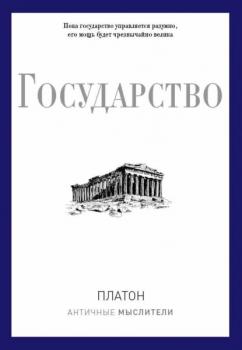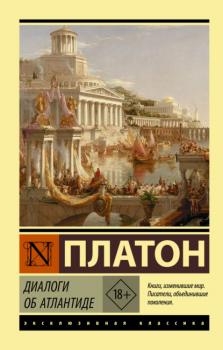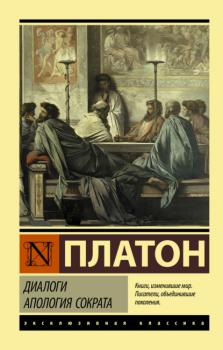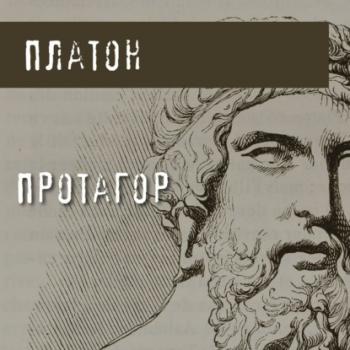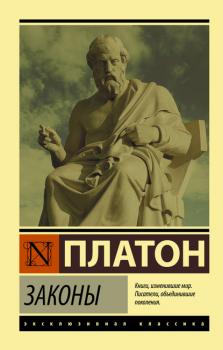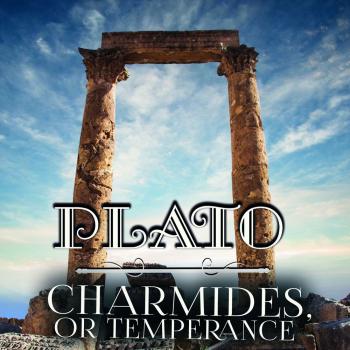Платон
Список книг автора ПлатонМера всех вещей
Платон Афинский – древнегреческий философ, ученик Сократа, учитель Аристотеля. Именно с Платона философия формируется как система знания. «Человек – мера всех вещей». Или нет? Об этом спорит Сократ с философами-софистами в «Протагоре», отстаивая благость богов, но не человека и раскрывая оппонентам понятие добродетели, которая есть высшее знание. В сборник включены также сочинения Платона «Феаг», «Менексен», «Эвтидем», «Горгиас», «Менон». Эти сократические произведения имеют форму диалогов, в которых методом вопросов и ответов проясняются проблемы воспитания и принципы образования, знания и невежества, истины и лжи, хаоса и порядка, добра и зла. В формате PDF A4 сохранен издательский макет книги.
Диалоги об Атлантиде
Первые упоминания великого философа о мифическом острове-государстве. История жизни, затопления и существования которой, по сей день является загадкой. Что мы знаем об Атлантиде? И откуда вообще мы о ней узнали? Откуда возникла эта легенда и кто впервые рассказал о могущественном островном государстве, описал его особенности и попытку завоевать древнее государство афинян? Диалоги великого философа Платона «Тимей» и «Критий» – это единственный литературный источник, подробно рассказывающий нам об этом острове, где располагалось «удивительное по величине и могуществу царство» атлантов, погрязших в роскоши, алчности и гордыне и за это ввергнутых богами в морскую пучину. В состав предлагаемого сборника входят также диалоги, затрагивающие тему человеческих добродетелей. © ООО «Издательство АСТ», 2022
Пир
«Пир» Платона – центральное для мировой культуры произведение, трактующее любовь не только как природное, но и как социальное и творческое начало. К «Пиру» восходят и многие обычаи влюбленности и любовных отношений, и представления о ценности творческой личности. Яркие и рельефные образы собеседников Сократа, повышенный драматизм, игра самыми разными поэтическими и прозаическими стилями и сейчас делают «Пир» неисчерпаемым ресурсом «романного» стиля мышления. В каком-то смысле «Пир» – проект не просто романа как литературного произведения, а романа как социального института. Смысл сложно устроенного диалога Платона далеко не сводится к воспеванию идеализированной любви, на что невольно наводят устаревшие переводы и толкования. Текст «Пира» дается в переводе профессора РГГУ Александра Маркова, учитывающем новейшие философские и филологические интерпретации центрального произведения Платона.
Государство
«Государство» Платона – одно из самых известных и противоречивых его произведений. В нем ставятся вопросы о природе справедливости, о наилучшем виде правления, о сущности блага. Споры вокруг построенной великим мыслителем модели идеального государства не утихают до сих пор. Что это – рациональное оправдание тоталитаризма или образец сократической иронии? Читателю предстоит решить это для себя самостоятельно, пройдя вместе с Сократом путь освобождения мысли от оков и отыскав выход из пещеры заблуждений к царству вечных идей. В формате PDF A4 сохранен издательский макет книги.
Государство
Труды Платона теперь в аудиоформате! Перед вами одно из величайших сочинений древнегреческого мыслителя Платона, написанное в 360 г. до н.э., по сию пору не утратившее крайней актуальности. Сочинение выстроено по принципу бесед, посвященных проблемам устройства идеального государства. В диалоге также содержится систематика и краткий критический анализ шести форм государства, размещенных автором последовательно – от наилучшего к худшему: монархия, аристократия, тимократия, олигархия, демократия и тирания. Издание снабжено подробным предисловием и обстоятельным комментарием к каждой части бесед, которые были написаны переводчиком сочинения, русским философом В.Н. Карповым. © Оформление ООО «Издательство АСТ», 2022 © & ℗ ООО «Издательство АСТ», «Аудиокнига», 2022
Диалоги об Атлантиде
Что мы знаем об Атлантиде? И откуда вообще мы о ней узнали? Откуда возникла эта легенда и кто впервые рассказал о могущественном островном государстве, описал его особенности и попытку завоевать древнее государство афинян? Диалоги великого философа Платона «Тимей» и «Критий» – это единственный литературный источник, подробно рассказывающий нам об этом острове, где располагалось «удивительное по величине и могуществу царство» атлантов, погрязших в роскоши, алчности и гордыне и за это ввергнутых богами в морскую пучину. В состав предлагаемого сборника входят также диалоги, затрагивающие тему человеческих добродетелей. В формате PDF A4 сохранен издательский макет книги.
Диалоги. Апология Сократа
«Апология Сократа» – это первый сохранившийся текст Платона, написанный вскоре после суда над Сократом и единственное его произведение, написанное не в форме диалога. Так почему же Афинское государство убило Сократа? Сократа, про которого дельфийская пифия сказала, что нет людей мудрее его. Сократа, который вошел в историю своим «Я знаю, что ничего не знаю». Сократа, который закончил свою речь на суде словами: «Но уже пора идти, мне – чтобы умереть, вам – чтобы жить, а что из этого лучше, никому неведомо, кроме бога». Все остальные произведения Платона имеют форму диалогов, в которых методом вопросов и ответов проясняются понятия долга и красоты, знания и невежества, истины и лжи, добра и зла. В сборник включены диалоги «Евтифрон», «Критон», «Федон», посвященные последним дням Сократа, а также «Пир» и «Федр». В формате PDF A4 сохранен издательский макет книги.
Протагор
Встречаются как-то Сократ, Гиппократ, Протагор, Каллий, сын Гиппоника, Продик Кеосский и другие известнейшие граждане Афин и начинают вести диалог. Платон же с удивительной точностью исторического свидетеля описывает случившуюся встречу в доме богача Каллия и погружает нас в атмосферу города того времени. Действие диалога происходит до начала Пелопоннесской войны (432 г.) и в нем отлично демонстрируются наличие расхождений в философских убеждениях в IV веке до н. э. Помимо прочего мы узнаем глубже критический взгляд Сократа на релятивизм и софистику, которая усилиями таких ораторов, как Протагор, провозглашала человека мерилом всех вещей.
Законы
Платон Афинский – древнегреческий философ-идеалист, ученик Сократа, учитель Аристотеля. Именно с Платона философия формируется как система знания. Что такое законы и почему их нужно выполнять? Зачем они нужны и на каких философских учениях должны быть основаны? Кому, по мнению Платона, предстоит воплотить эти законы и стать идеальным правителем? И каков он, идеальный правитель? Устами своих героев на эти и другие вопросы отвечает Платон в диалогах «Софист», «Политик», «Законы» и «Послезаконие». В формате a4.pdf сохранен издательский макет.
Charmides
The Charmides (Greek: Χαρμίδης) is a dialogue of Plato, in which Socrates engages a handsome and popular boy in a conversation about the meaning of sophrosyne, a Greek word usually translated into English as «temperance», «self-control», or «restraint». As is typical with Platonic early dialogues, the two never arrive at a completely satisfactory definition, but the discussion nevertheless raises many important points. Famous dialogues of Plato – Early: Apology, Charmides, Crito, Euthyphro, Hippias MinorIon, Laches, Lysis; Transitional and middle: Cratylus, Euthydemus, Gorgias, Menexenus, Meno, Phaedo, Protagoras, Symposium; Later middle: Parmenides, Phaedrus, Republic, Theaetetus; Late: Critias, Laws, Philebus, Sophist, Statesman, Timaeus.



